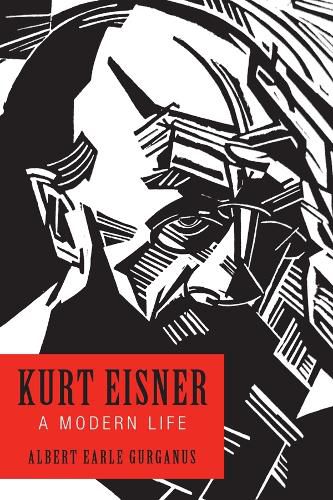Readings Newsletter
Become a Readings Member to make your shopping experience even easier.
Sign in or sign up for free!
You’re not far away from qualifying for FREE standard shipping within Australia
You’ve qualified for FREE standard shipping within Australia
The cart is loading…






At the end of the First World War, German Jewish journalist, theater critic, and political activist Kurt Eisner (1867-1919), just released from prison, led a nonviolent revolution in Munich that deposed the monarchy and established the Bavarian Republic. Local head of the Independent Socialists, Eisner had been jailed for treason after organizing a munitions workers’ strike to force an armistice. For a hundred days, as Germany spiraled into civil war, Eisner fought as head of state to preserve calm while implementing a peaceful transition to democracy and reforging international relations. He rejected another central German government dominated by Prussia in favor of a confederation of autonomous equals, a United States of Germany. A Francophile, he sought ties with Paris in hope of containing Prussia. In February 1919, on the way to submit his government’s resignation to the newly elected constitutionalassembly, Eisner was shot by a protofascist aristocrat, plunging Bavaria into political chaos from which Adolf Hitler would emerge. At the centenary of the Bavarian Revolution and Republic of 1918/19, this is the first comprehensive biography of Eisner written for an English-language audience.
Albert Earle Gurganus is Professor Emeritus of Modern Languages at The Citadel. He is the author of The Art of Revolution: Kurt Eisner’s Agitprop (Camden House, 1986).
$9.00 standard shipping within Australia
FREE standard shipping within Australia for orders over $100.00
Express & International shipping calculated at checkout
Stock availability can be subject to change without notice. We recommend calling the shop or contacting our online team to check availability of low stock items. Please see our Shopping Online page for more details.
At the end of the First World War, German Jewish journalist, theater critic, and political activist Kurt Eisner (1867-1919), just released from prison, led a nonviolent revolution in Munich that deposed the monarchy and established the Bavarian Republic. Local head of the Independent Socialists, Eisner had been jailed for treason after organizing a munitions workers’ strike to force an armistice. For a hundred days, as Germany spiraled into civil war, Eisner fought as head of state to preserve calm while implementing a peaceful transition to democracy and reforging international relations. He rejected another central German government dominated by Prussia in favor of a confederation of autonomous equals, a United States of Germany. A Francophile, he sought ties with Paris in hope of containing Prussia. In February 1919, on the way to submit his government’s resignation to the newly elected constitutionalassembly, Eisner was shot by a protofascist aristocrat, plunging Bavaria into political chaos from which Adolf Hitler would emerge. At the centenary of the Bavarian Revolution and Republic of 1918/19, this is the first comprehensive biography of Eisner written for an English-language audience.
Albert Earle Gurganus is Professor Emeritus of Modern Languages at The Citadel. He is the author of The Art of Revolution: Kurt Eisner’s Agitprop (Camden House, 1986).